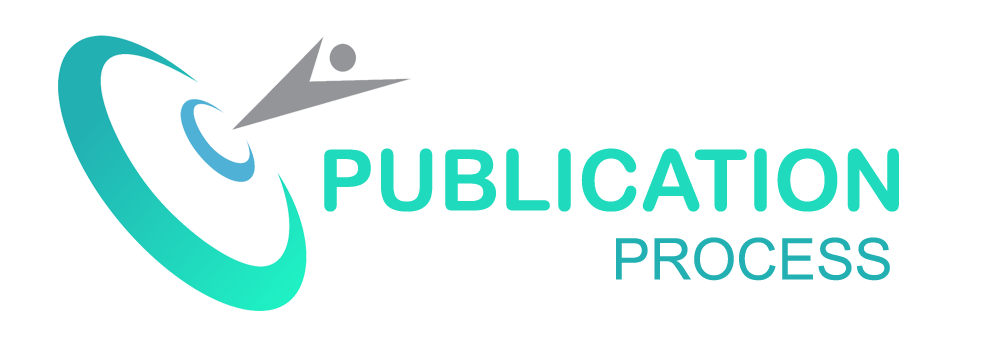ANALISIS PENGARUH PENDIDIKAN DAN PELATIHAN (DIKLAT) TERHADAP PENGEMBANGAN KARIR PADA SEKOLAH STAF DAN PIMPINAN POLRI DI LEMBANG BANDUNG
DOI:
https://doi.org/10.36805/manajemen.v1i2.110Abstract
ABSTRACT The purpose of this study was to obtain empirical evidence and found the clarity of the phenomenon and conclusions about the influence of education and training (training) and motivation for career development at the School of Police Staff and Leaders in Lembang, Bandung. The study was conducted by using a quantitative method with descriptive analysis and verification methods, namely; collecting, presenting, analyzing and testing hypotheses, and make conclusions and suggestions. Based on the results of the analysis of the results, we concluded as follows: The implementation of education and training (training) are on a scale of good, it means that education and training (training) is in conformity with the program. Implementation of career development is on a scale of good, it means that the career development has been implemented properly. Effect of education and training (training) have a significant influence on career development. Based on the results of educational research and training (training) is dominant to contribute to the career development. Keywords: education and training (training), career developmentDownloads
References
DAFTAR PUSTAKA
A.W.Widjaja. 1986. Peranan Motivasi Dalam Kepemimpinan, Bandung Edisi Pertama, Cetakan Pertama. Cv. Akademika Pressindo.
Ahmad Tohardi. 2002. Pemahaman Praktis Manajemen Sumber Daya Manusia,. Penerbit CV. Mandar Maju, Jakarta.
Ambar Teguh Sulistiyani dan Rosidah,2003, Manajemen Sumber Daya Manusia,. Graha Ilmu: Yogyakarta
AS'ad, Moh, 2001. Seri Ilmu SDM : Psikologi Industri. Edisi Keempat. Yogyakarta.
B Flippo, Edwin,2000, Manajemen Sumber Daya Manusia, Jakarta.
Bambang Wahyudi,2002, “Manajemen Sumber Daya Manusiaâ€, Sulita, bandung
Byars, Lloyd I. dan Leslie w. Rue. (2006).Human Resource Management 8th edition. McGraw-Hill.
Gomes, Faustino Cardoso, 2003, Manajemen Sumber Daya Manusia, Penerbit Andi,. Yogyakarta.
Handoko, Hani T. 2003.Manajemen. Penerbit: BPFE. Yogyakarta.
Hasibuan, Malayu S.P, 2006, Manajemen Dasar, Pengertian, dan Masalah, Edisi Revisi, Bumi Aksara, Jakarta.
Henry Simamora. 2004. Manajemen Sumber Daya Manusia. Edisi Ke-3. STIE YKPN. Yogyakarta
Mangkunegara, Anwar P. 2008, Manajemen Sumber Daya Manusia Perusahaan, PT. Remaja
Mangkuprawira.2004.Manajemen SDM Strategik, PT Ghalia. Indonesia, Jakarta
Martoyo, S. 2000. Manajemen Sumber Daya Manusia, BPFE, Yogjakarta
Marwansyah. 2010, Manajemen sumber daya manusia. Alfabeta:Bandung.
Nimran, Umar. 2004. Manajemen Sumber Daya Manusia, Edisi Pertama, Cetakan Ketujuh,. PT. Bumi Aksara, Jakarta.
Purwanto, M. Ngalim. 2006. Psikologi Pendidikan. PT Remaja: Bandung
Robbins, Stephen P, 2007. Human Resource Management. 8th edition. McGraw-Hill,. New York.
Samsudin, sadili.(2006), Manajemen Sumber Daya Manusia, Cetakan ke-1, Pustaka Setia:Bandung.
Siswanto Sastrohadiwiryo, 2003, Manajemen Tenaga Kerja Indonesia, edisi 2, PT. Bumi Aksara, Jakarta.
Soekidjo Notoatmodjo. 2009. Manajemen dan Psikologi .Lembaga Penerbit FEUI, Jakarta.
Sondang P. Siagian, 2001, Manajemen Sumber Daya Manusia, Bumi Aksara,. Jakarta.
Tjutju Yuniarsih dan Suwatno. 2008. Manajemen Sumber Daya Manusia. Bandung
Veithzal Rivai, 2008, Manajemen Sumber Daya Manusia untuk Perusahaan, Bandung
Wursanto.1989. Manajemen Kepegawaian. Kanisius,Yogyakarta.
Downloads
Published
Issue
Section
License
Authors who publish in Jurnal Manajemen dan Bisnis Kreatif agree to the following terms:
- Authors retain copyright and grant the journal right of first publication with the work simultaneously licensed under a Attribution-ShareAlike 4.0 International (CC BY-SA 4.0) License that allows others to share the work with an acknowledgment of the work's authorship and initial publication in this journal.
- Authors are able to enter into separate, additional contractual arrangements for the non-exclusive distribution of the journal's published version of the work (e.g., post it to an institutional repository or publish it in a book), with an acknowledgment of its initial publication in this journal.
- Authors are permitted and encouraged to post their work online (e.g., in institutional repositories or on their website) prior to and during the submission process, as it can lead to productive exchanges, as well as earlier and greater citation of published work (See The Effect of Open Access).








